How I almost didn't watch Farscape but Ben Browder convinced me.
A wonderful guilty pleasure.
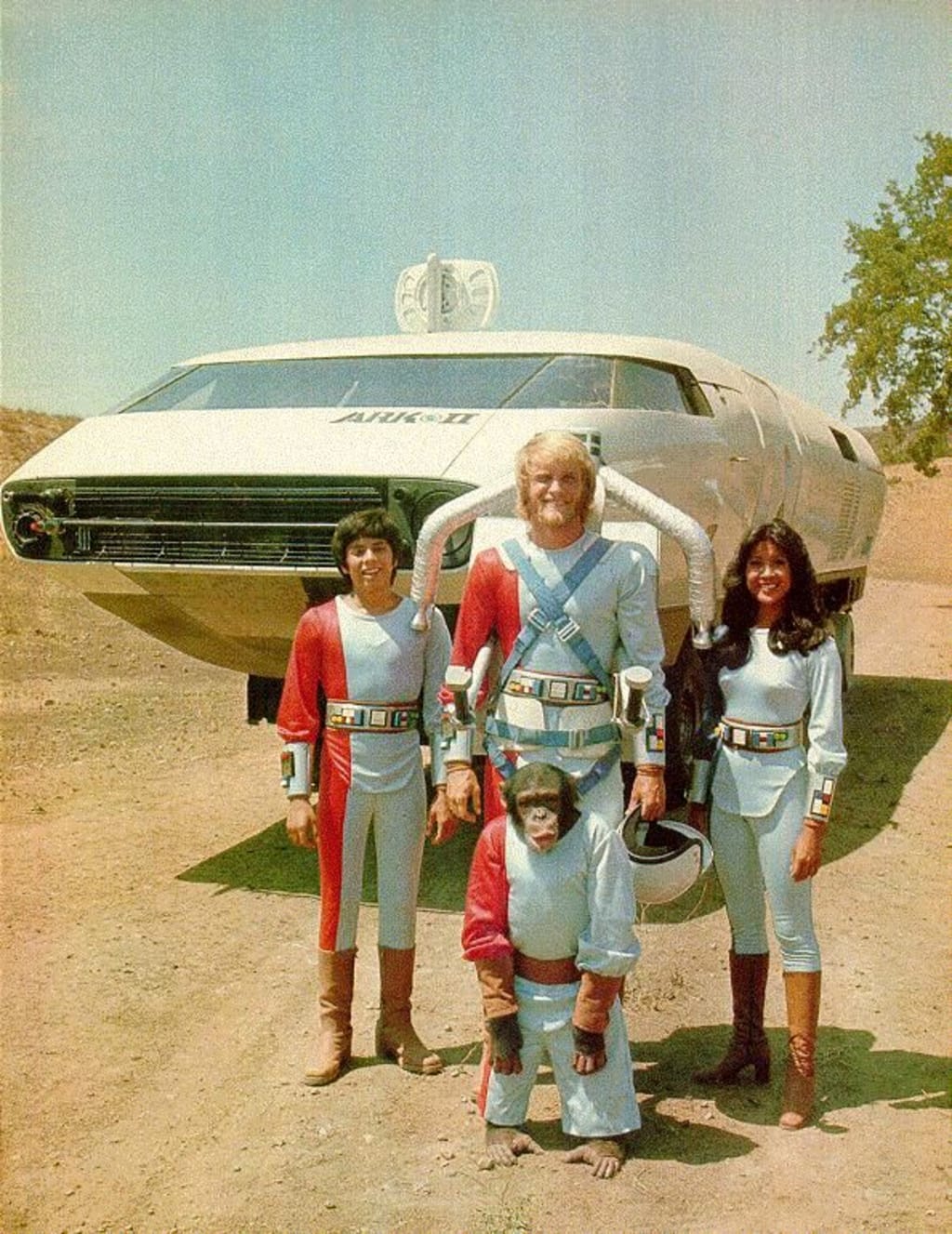
Being a child of the seventies, I grew accustomed to a familiar pattern when it came to the arrival of the latest science fiction program on network television. Beginning around July or August, one of the four major networks, I am looking at you NBC and FOX, would begin advertising the greatest, most innovative, science fiction or fantasy show of our generation. Since there was no internet available to the masses at that time, I would proceed to inhale any and all tidbits of information regarding this new show by reading TV Guide, Star-Log, Wizard World or any other relevant Sci-fi publication. Then I wait with batted breath for the premiere, usually till around October because the Sci-Fi shows were never in the first wave of the new Fall shows. And finally, the new show would arrive on the family’s console television. And that is when the disenchantment would commence because they would never be as good as I had envisioned them in my own imagination. And I learned to deal with disappointment. The large majority of the shows were pulled after one season after serving their purpose to me, mainly providing new material for my fan fiction.
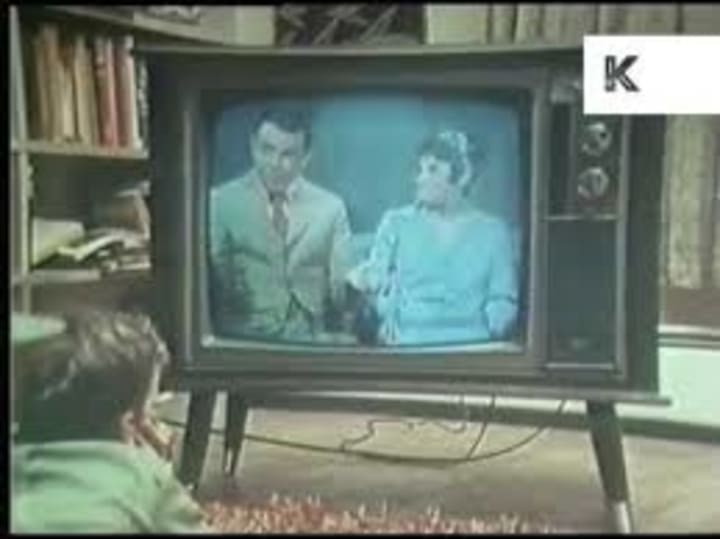
Fast forward twenty-five years later. The Science Fiction aficionados had their own network, The Syfy Channel and things were going to be different. Science Fiction shows would not be cancelled just because they did not appeal to a wider audience. Production values would be of a higher level and quality stories would be penned by writers who had a love for science fiction.
Then I learned which organization was running NBC. Yes, my childhood programming nemesis, NBC. I could feel my heart sink.
To add insult to injury, I learned in early 1999 that the SYFY Channel was producing a new science fiction program about an astronaut named John Crichton who becomes stranded in a distant part of the galaxy. Upon arrival, He reluctantly joins a ragtag group of aliens onboard a sentient craft named Moya with a symbiotic creature driving the ship, known as Pilot.
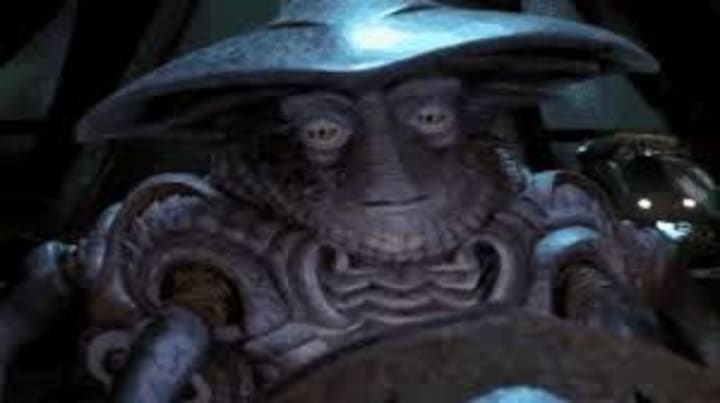
After seeing the synopsis, all I could think to myself was that it would be another disappointing journey with actors in rubber face masks and puppets. I decided that I would sit out this particular Sci-Fi/ Fantasy show. However, fate decided to step in and convinced me that I needed to watch this new program, Farscape. I happened to be attending a Slanted Fedora Science Fiction convention that spring in Pasadena, California with the expressed goal of participating in question-and-answer sessions with some of my favorite Star Wars and Star Trek actors. On the second day of the four-day event, I discovered to my disappointment that the Q & A with George Takei and Walter Koenig was filled to capacity upon my arrival. It was then that I wandered back into the dealer room where I saw a few stars of the upcoming Syfy program, Farscape, signing autographs and doing a meet and greet. After meeting the star of the program, Ben Browder, and getting his autograph, he seemed to be a warm, funny relatable actor who had a genuine appreciation for the Sci-Fi genre. And I concede that I might have been seduced by Southern, Aw-Shucks variety of Memphis charm. But I made the decision after meeting him that I would give Farscape a chance.
Two weeks later, on March 19th 1999, I laid on my bed and watched the premiere of Farscape. Browder’s character, John Crichton, was an Earth man who was the fish out of water among indigenous species. John was the one who did not belong in a particular part of the galaxy. He was also seen as an unwelcomed guest onboard the ship. He was unwelcomed not because he was an unknown species but that he resembled the oppressive alien species, known as the Peacekeepers, whom the rest of the crew of Moya are trying to escape from.
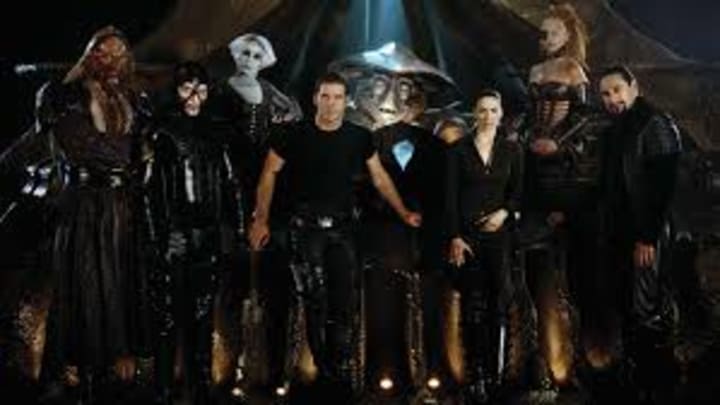
Towards the end of the premiere episode, the crew of Moya, whom Crichton learns is comprised of Zhaan; a sentient plant, Rygel; a monarchy who was deposed by his brother, D’Argo; a warrior who has been falsely accused of killing his wife, and Aeryn; a Peacekeeper who has accidently become marooned on Moya, are forced to flee from the Peacekeeper, Chais, by entering a wormhole that takes Moya to a distant corner of the galaxy. Now, John Crichton must assist the crew of Moya to not only return to their own known space. But, at the same time, he must find his way back to Earth.
Through the course of the season, John Crichton begins to learn more about an advanced race known as the Ancients, who are responsible for the creation of the wormhole that brought his ship to the Farscape galaxy. John also learns that the Ancients have been experimenting on humans and have placed alien knowledge in his head on the creation of wormholes.
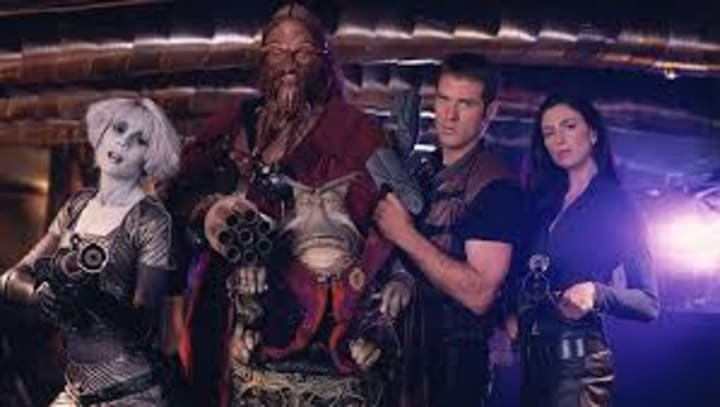
By season’s end, we discover, along with John Crichton, that one of the Peacekeepers, Scorpius, played by the amazing Wayne Pilgrim, who is a genetic hybrid of the Peacekeepers and their chief rivals, the Scarrans, wants the information inside John’s head regarding wormhole technology and will do anything to get it.
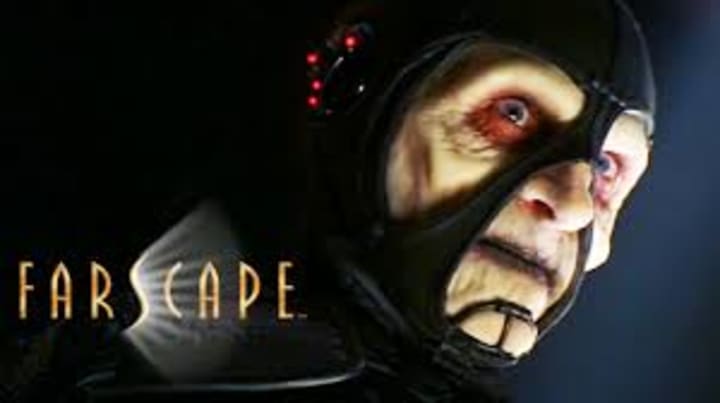
Now, dear reader, I am not going to lead you down the Syfy primrose path. There were some tried and true science fiction devices that were used in certain episodes. One of the most hilarious was an episode involving body swapping. However, these tried and true plot devices existed side-by-side with stories that allowed us to learn about these characters’ back stories and what had brought them to this point in their lives. And I was disappointed slightly a few years later when I went to see Guardians of the Galaxy and realized how heavily Farscape had borrowed from that Marvel franchise.
None the less, what I took away from watching Farscape was the fact that I found myself able to form an emotional attachment to these strange-alien characters and their weekly adventures. And as with most science fiction shows, their continued existence always remains in-flux. Therefore, the series finale, at the end of the fourth season, was an abbreviated send-off that left a number of questions unanswered. However, unlike many other science fiction programs, Farscape fans were given the gift of closure in a two-part miniseries, the Peacekeeper Wars. And I must admit that I don’t usually need a tissue box for a Sci-fi show, but the end ripped my heart out and stomped on it a few times. At the same time, Peacekeeper Wars was probably some of the most satisfying story-writing that I have seen in a long time on television.
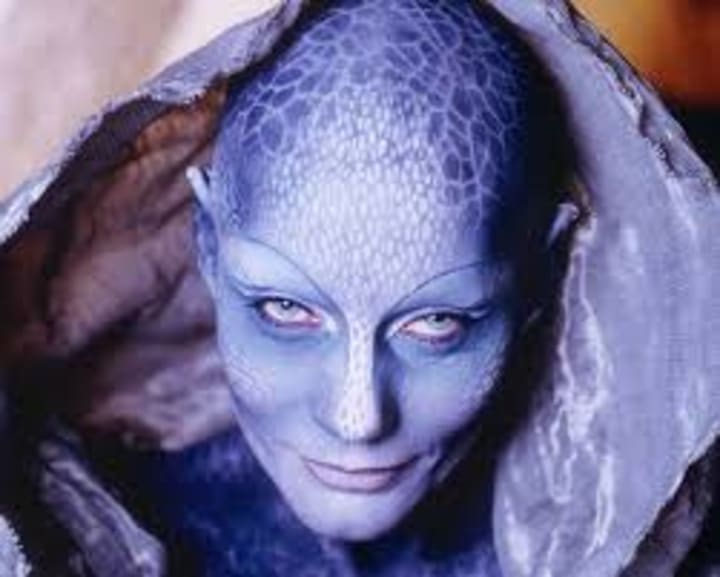
My only regret is that I doubt that there will ever be another program that will take me on as wild a ride as Farscape. Today, it seems that the fantasy, superhero, sci-fi shows all have some big plot twist that the writers can’t wait to reveal, but Farscape was different. The writers seemed to be saying through their stories that stuff is about to get weird so you might want to hold on tight.
About the Creator
William Gold
William Howard is a graduate of LaSalle. He taught for 16 years with the School District of Philadelphia and volunteered at the Academy of Natural Sciences. He writes short stories and novels and lives in Philadelphia with his wife, Bonnie


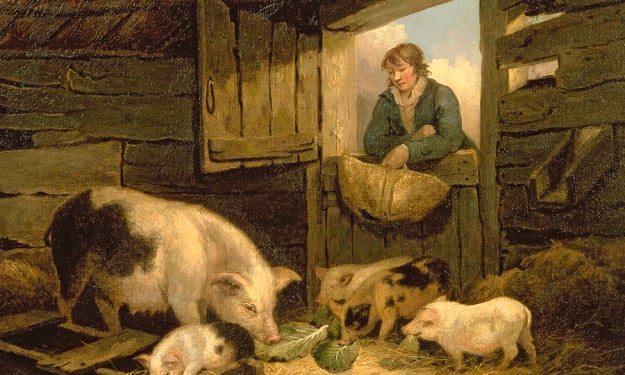

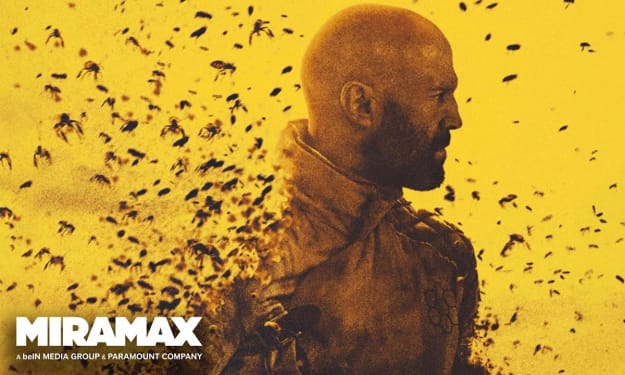

Comments
There are no comments for this story
Be the first to respond and start the conversation.